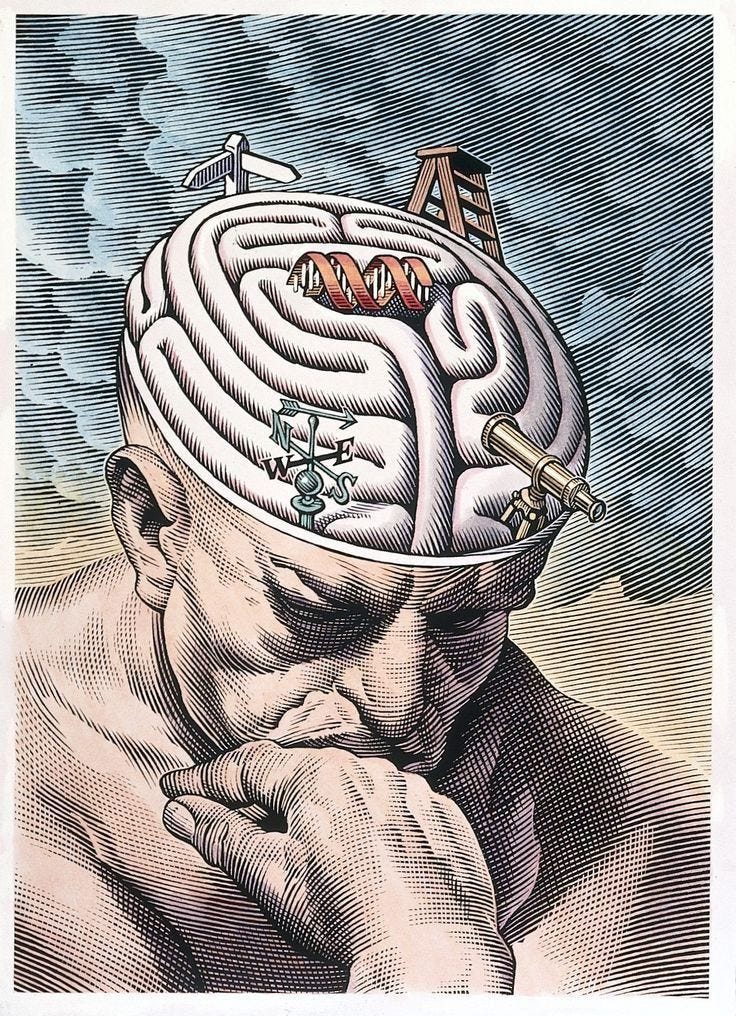We often come across YouTube videos titled "Overthinking Will Kill You," but what kind of overthinking are we really talking about—emotional, intellectual, or practical? I used to believe overthinking was purely emotional turmoil.
However, it can go beyond that and actually offer valuable insights into real life. This leads me to a deeper observation: many people associate anxiety with overthinking, but they often fail to realize that anxiety is actually the result of the subconscious mind being the true overthinker—something we can't easily control. In many cases, it's rooted in a constant pursuit of perfection.
Alan Watts once said that “A person who thinks all the time has nothing to think about except thoughts.”
As a philosopher, I believe overthinking is essential—but its nature is often unclear, which can lead to confusion. However, overthinking can also spark a chain of ideas and reflections that might create meaningful change.
This "difference" arises because our thoughts often align with the universe in strange ways; when we place too much emphasis on something, we start to see it everywhere. This can lead to illusions—harmful if they revolve around trivial or negative matters, but valuable if they align with our principles or growth.
Overthinking is not grounded in facts but in imagination, which can either guide us toward insight or mislead us in decision-making—sometimes resulting in unproductivity and change of decision as well.
Overthinking itself is not the problem; the subject of our overthinking is besides it belongs to overwhelming experience.



